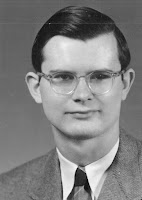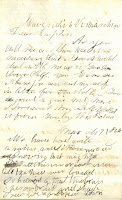 In February of 1993, a few months before he died, Sine wrote a letter to the college, informing them that he wanted to make a bequest in honor of Professor West. The gift he gave was a kingly one: 3,000 original watercolors and drawings by noted British illustrators and 6,000 books illustrated by them, about them, or referring to them. At the time, the gift made Dartmouth one of the best research institutions in the nation for the study of the British illustrated book. As Sine said in his letter, he was "particularly delighted that [the collection] is going to Dartmouth College, where it can remain as a permanent tribute to the memory of my friend and mentor."
In February of 1993, a few months before he died, Sine wrote a letter to the college, informing them that he wanted to make a bequest in honor of Professor West. The gift he gave was a kingly one: 3,000 original watercolors and drawings by noted British illustrators and 6,000 books illustrated by them, about them, or referring to them. At the time, the gift made Dartmouth one of the best research institutions in the nation for the study of the British illustrated book. As Sine said in his letter, he was "particularly delighted that [the collection] is going to Dartmouth College, where it can remain as a permanent tribute to the memory of my friend and mentor." Although we have relied upon the Sine collection quite often for teaching purposes, and have blogged about it on occasion, we wanted to promote a little-known sub-category of the collection, namely, Sine Serials. The Sine Serials collection consists of impressive runs of mostly 19th-century British magazines and periodical publications that contain numerous fascinating and engaging illustrations. One of those magazines, Punch, is often considered to be the quintessential British illustrated humor magazine. The first issue of Punch was published in July of 1841; the magazine remained in publication for over 160 years, with only one brief hiatus in the 1990s. Punch's name was a reference to the puppet Mr. Punch of "Punch and Judy," a traditional slapstick puppet show often associated with British culture. Among Punch's achievements is the first use of the word "cartoon" to refer to comic drawings.
Although we have relied upon the Sine collection quite often for teaching purposes, and have blogged about it on occasion, we wanted to promote a little-known sub-category of the collection, namely, Sine Serials. The Sine Serials collection consists of impressive runs of mostly 19th-century British magazines and periodical publications that contain numerous fascinating and engaging illustrations. One of those magazines, Punch, is often considered to be the quintessential British illustrated humor magazine. The first issue of Punch was published in July of 1841; the magazine remained in publication for over 160 years, with only one brief hiatus in the 1990s. Punch's name was a reference to the puppet Mr. Punch of "Punch and Judy," a traditional slapstick puppet show often associated with British culture. Among Punch's achievements is the first use of the word "cartoon" to refer to comic drawings.To explore any of the fascinating titles in the Sine Serial collection, search the catalog using the keyword "Sine Serials" and limiting the result to Rauner Library. To look at issues of Punch in particular, ask for Sine Serials AP101 .P8.



